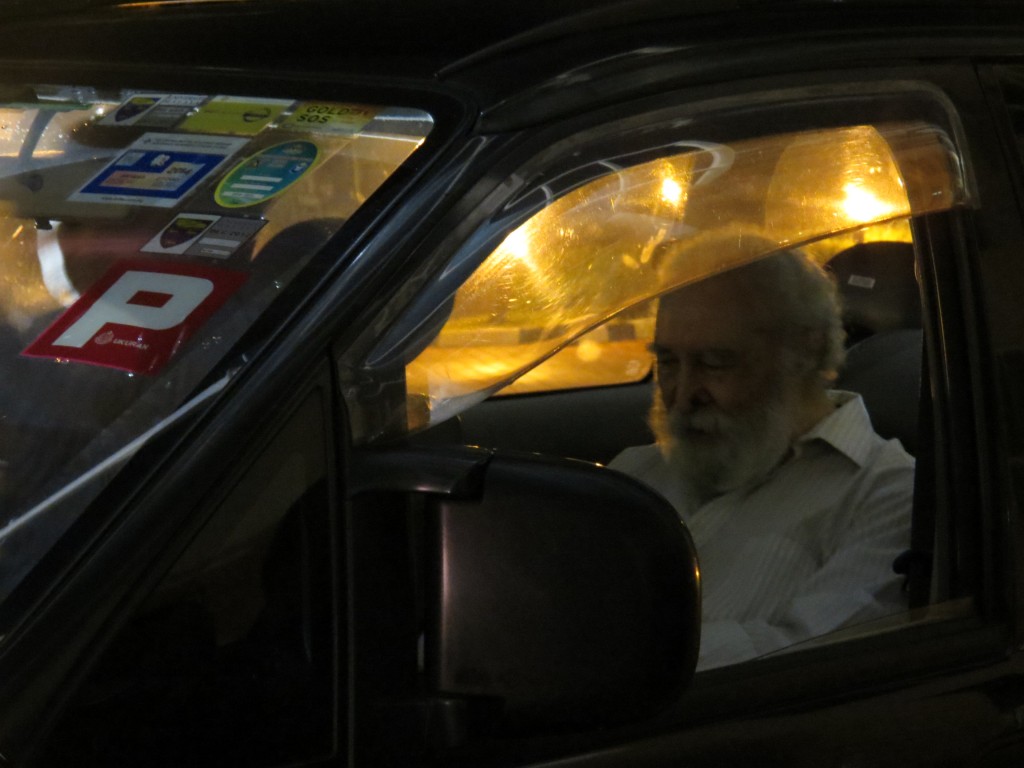
“On Meanings and Definition”
Summary
SATURDAY NIGHT LECTURE WITH TAN SRI. PROF. DR. SYED MUHAMMAD NAQUIB AL-ATTAS, 5TH APRIL 2014
By Khalina Khalini
Tan Sri Prof. Syed Muhammad Naquib al-Attas was generous indeed to quench the thirst of the seekers of knowledge who thronged into Dewan Utama on the arid night of April 4th, 2014. Sitting literally on a pedestal in the hall that fits 500, Prof. Al-Attas exhorted us to know ourselves as part of our educational objectives. To know ourselves, as we really are – in relation to others in our surroundings is part of the education (ta’dib) for a member of a highly civilized society. We risk tipping the delicate balance of justice when we lose our sense of adab, either by placing ourselves above our rightful position or below what we ought to be, and in so-doing we are committing injustice (zulm). We, as individuals and members of society, need to acquire wisdom in order to take our rightful place is society and to develop a civilized ummah.
This reminds me of the hadith of the Prophet:
Wisdom is the loss property of the Muslim. Therefore, wherever he finds it, he deserves it more than anyone else to have it.
-Imam al-Suyuti, in al-Jami’ al-Ṣaghir
However, today we no longer understand the reality of things around us due to our own restrictive outlook on things. Many of our scientists observe things at the material level – where our spiritual aspects are not invoked in penetrating the meaning of things. This results in dualism. As a rational animal (hayawan al-nātiq), we possess a spiritual entity called “soul”. Our soul works in tangent with our mind and body to approach everything we see both subjectively and objectively. Prof. Al-Attas reminded us of the distinction between the term “rational” as used by our Muslim scholars of the past and that referred to by Western philosophers. A rational man is not just someone who uses his reason in a superficial and limited sense. A rational man employs his intellect (‘aql) as a spiritual act. To refer only to our “mind” or what has now been conveniently “Malay-ized” into the word “minda” is a reference to ‘aql, at least a part of it. The English use of the terms “self”, “soul”, “mind” and “intellect” is problematic because of their severance of the body from the soul, the brain from the ‘aql.
Al-Attas stated that the ‘aql is ever-living while the body is temporal. After our body has expired, the ‘aql continues hearing and exploring the external world. When we die, we still feel pain such as the punishment of the grave.
Thus, we must know the real meaning of terms before we misappropriate the vocabularies that we employ. Prof. Al-Attas cited Surah al-Baqarah, “God taught him (Adam) the names of all things.” Al-Attas stated that God must have created speech in man before naming the things around him. Names refer to meanings, attributes, sifah and haqīqah. “The Names of Allah have meanings, whereby the things of this world become attributes from Allah’s Names.” One such Names is the Just (al-‘adl), and from this we see that man is created to know what justice is.
When we reduce meanings, away from its actual attributes, we belittle the words. Prof. Al-Attas provided the following words as examples: “civilization”, “education” and “tarikh” versus “shajarah (sejarah)”. Firstly, civilization is not reduced to the production of human tools, such as axes and others. Just because these things were found in the Bujang Valley, does not prove that a “civilization” thrived there. Secondly, the word education has been reduced to “tarbiyyah” even though the Qur’an does not refer to this word beyond indicating a mere act of disciplining someone or something, as in the Qur’anic verse on Fir’aun and Prophet Musa’s upbringing (26:18).
Thirdly, the word “history” if referred to as “tarikh” would indicate merely a chronology of events without pondering upon the reasons behind certain occurrence. However, the word “sharajah” is more apt for it refers to history with its full implications, having a root, branches, leaves and flowers.
Ending at this note, Al-Attas reminded us to continue learning and to improve ourselves – an endeavor that we truly are in need of “more now than before.” We should be aware about where we come from and to where we will return.
summarized byKhalina Khalili | PhD Candidate, CASIS | 10th April 2013
Click here for PDF
Click here for Pictures
